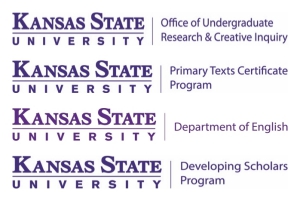Student Major/Year in School
Early Childhood Education, first year
Faculty Mentor Information
Socorro Herrera, CIMA, College of Education
Abstract
This study explored the perspective on dual language programs of parents of bilingual children. A survey was conducted to answer the following research question: What are the implications of parent perspectives of language within a preschool setting? Our focus was trying to find what the parental point of view and knowledge was on dual language programs. The survey was taken through an urban center that aims to improve their community for people of diverse ethnic backgrounds in the Midwest, with an emphasis on the Latino community. This helps us have an authentic and first-hand insight on the impact of dual language programs on the Hispanic/ bilingual community. This community center aids minorities and underrepresented communities and is preparing to begin a dual language program the survey was answered by parents of potential students. Survey results provided an understanding of parent perspectives on Dual language by giving us an idea of how much they know about Dual Language programs and how they implement languages at home. The survey included questions on topics on knowledge of education, their own child, language, culture and identity, and fundamentals of knowledge. Among key findings of the research are the following: (a)56% percent of the children enrolled grew up learning 2 languages, (b)most of these children were introduced to a second language at the age of 3, and (c) over half of the surveyed consider their family bicultural. The level of parental involvement and understanding of a dual language program and how bilingual education works is critical to the effectiveness of an Early Childhood Dual Language Program in order to build a connection between a child and the parent as well as building confidence in bilingual students to develop languages successfully.
Creative Commons License

This work is licensed under a Creative Commons Attribution-Noncommercial 4.0 License
Recommended Citation
Acosta, Merida and Herrera, Socorro (2019). "Leveraging DL Parent's Knowledge: Parents as Partners in Waiting," Kansas State University Undergraduate Research Conference. https://newprairiepress.org/ksuugradresearch/2019/posters/7
Included in
Bilingual, Multilingual, and Multicultural Education Commons, Early Childhood Education Commons
Leveraging DL Parent's Knowledge: Parents as Partners in Waiting
This study explored the perspective on dual language programs of parents of bilingual children. A survey was conducted to answer the following research question: What are the implications of parent perspectives of language within a preschool setting? Our focus was trying to find what the parental point of view and knowledge was on dual language programs. The survey was taken through an urban center that aims to improve their community for people of diverse ethnic backgrounds in the Midwest, with an emphasis on the Latino community. This helps us have an authentic and first-hand insight on the impact of dual language programs on the Hispanic/ bilingual community. This community center aids minorities and underrepresented communities and is preparing to begin a dual language program the survey was answered by parents of potential students. Survey results provided an understanding of parent perspectives on Dual language by giving us an idea of how much they know about Dual Language programs and how they implement languages at home. The survey included questions on topics on knowledge of education, their own child, language, culture and identity, and fundamentals of knowledge. Among key findings of the research are the following: (a)56% percent of the children enrolled grew up learning 2 languages, (b)most of these children were introduced to a second language at the age of 3, and (c) over half of the surveyed consider their family bicultural. The level of parental involvement and understanding of a dual language program and how bilingual education works is critical to the effectiveness of an Early Childhood Dual Language Program in order to build a connection between a child and the parent as well as building confidence in bilingual students to develop languages successfully.


